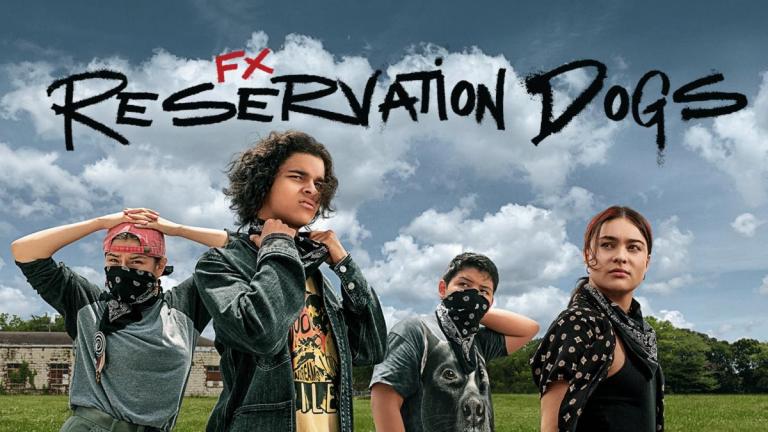Dahkota Brown ’20 recently finished working as a production assistant on the hit Hulu show “Reservation Dogs.” The show, a comedy-drama television series, recounts the tale of the lives of four Indigenous teenagers living in rural Oklahoma.
TSD: What sort of impact do you hope your show will have on viewers, specifically Native viewers?
DB: I think the fact that the show is for Native people, a lot of the humor is Native based, and if non-Native people watch it and they like it, that’s a plus. But from my point of view, it’s definitely by Natives for Natives, like I said, and so the fact that Native youth especially are able to see themselves represented on screen with Native actors playing Native characters, which hasn’t always been the case for Hollywood. That accurate representation of Native peoples is monumental, especially for Native youth who are wanting to get involved in the industry and finally have some people to look up to and people like them who are doing projects like this.
TSD: What were the main reasons you wanted to work on the show?
DB: So, when I first found out that Reservation Dogs was going into production, my immediate reaction was, how do I get to be a part of this? Because as a Native person who is studying theater and film production, it seemed like an amazing opportunity if I were able to work on it. And especially given the historical circumstances of the show, Reservation Dogs is the first really big TV production to have an all-Native writing room, all Native directors, Native producers, native showrunners, a ton of the crew was Native, so it was just very exciting to see that this was happening in the first place. But I was just kind of like, how do I get to help with this and be part of this historical moment?
TSD: What was your favorite part of the show, plot-wise?
DB: My favorite part of the show was how heavily based it is on community because that’s something that is very true to Native people and Native lifestyles. We are all about community, and even if we’re not blood-related, you have your aunties and uncles and cousins, and everybody’s basically family, even if there’s no blood there. I would say that that whole sense of community throughout the show is what I felt most connected to, and one of the big things that I love about it.
TSD: What was the most rewarding part of working on the show?
DB: I think the most rewarding part was getting to meet and know everyone who worked on the show. Being able to meet some of the cast members and talk to them, they were all super down to earth super friendly. Like I said, it was basically a big family by making connections that are lifelong and being able to reach out to these people if I need anything. I personally am into screenwriting, and that’s what I want to do eventually is screen write and be a writer. And so being able to meet people who I can send scripts to or reach out and ask about production or just even if I want to learn more, just being able to ask questions of all these people in the industry. So, yeah, I’d say the most rewarding part was just getting to know everyone who worked on the set, all the crew members who are just really genuinely nice people.
This transcript has been lightly edited and condensed for clarity.
